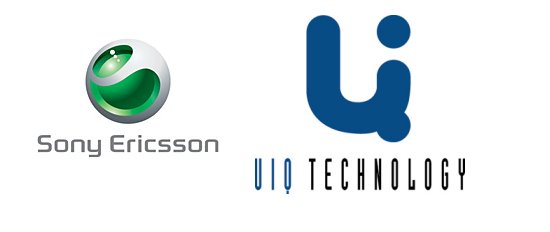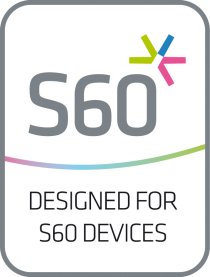
Nokia marketing the 6600 back in 2003. You'd have to dig hard into the product marketing to find even "Series 60", let alone "Symbian".
The OS is the platform is the ecosystem
Look at the High Street today, or at least the phone shops. iPhone is in every one, everyone seems to aspire to (affording and) owning one, with perhaps half of iPhone owners being familiar with the term 'iOS'. Samsung 'Galaxy' phones are everywhere, and, again, I'd say that about half their owners are familiar with the word 'Android' as the OS. Plus 'Android' itself is often listed right on the display boards of vast swathes of the phones on sale these days.
It's all a far cry from the millennium, with Symbian emerging as by far the leading light in the brave new world of smartphones - except that almost noone who bought a Symbian smartphone from 2000 to 2010 would actually have known the name of the operating system or platform that their device used. Instead, we had mass confusion, with manufacturers (Nokia, Sony Ericsson, Sendo, Samsung and others) preferring to use their own name behind the device or, if pushed, the latest rebrand name for the interface skin being used.

Sony Ericsson was typical - if pushed, it would say that the P900 and successors "ran UIQ". The only association with Symbian tended to be the company's appearance at the annual Symbian trade show - and the fact that we covered UIQ here on AAS!
It's worth noting that all of this was deliberate - back in the earliest days of Symbian, it was agreed that the OS name itself should be deprecated in the way described above. 'Buyers don't want to know about operating systems' was the agreed (if shortsighted, in hindsight) wisdom...
Interface branding!
Thus we had:
- Series 80
- Series 90
- Series 60
- UIQ
- S60
- S60 3rd Edition (don't get me started on the subtleties of 'Feature Packs' etc!)
- S60 5th Edition
- Symbian^3 (then Anna)
- Nokia Belle (plus feature packs etc.)
 Quite a list. Now, it's true that iOS and Android have been through almost as many versions in their lifetime, but the name didn't keep changing. Brand aware consumers can cope with a number incrementing, but changing the core name of the platform/OS/ecosystem was just crazy.
Quite a list. Now, it's true that iOS and Android have been through almost as many versions in their lifetime, but the name didn't keep changing. Brand aware consumers can cope with a number incrementing, but changing the core name of the platform/OS/ecosystem was just crazy.
I should point out that to us, the tech industry writers, and (probably) to you, the informed Symbian smartphone enthusiasts, most of the above terms are familiar and each interface iteration not only made absolute sense, they were rightly welcomed and they provoked excitement. But the proportion of smartphone buyers who were/are enthusiasts has been falling steadily over the last decade. We often focus on the proportion of overall phone sales which are smartphones - an equally interesting metric is the proportion of smartphone buyers who care enough about the technology to try and understand how their device ticks. How many times have you bumped into a fellow N8 owner (for example) and asked if they were using the latest 'Belle Refresh' (or similar), to be met with a blank look and the revelation (when you show them how to check) that they've never applied any updates, and that their device is still running launch firmware?
Back in 2004 (ish), most 'Series 60', 'Series 80' or 'UIQ' smartphone owners knew more or less what they'd bought and paid attention to the software involved. In 2012, the vast majority (say 95%) of smartphone owners have absolutely no clue about, or indeed interest in, operating system versions, updates and patches. At least modern OS versions usually prompt such updates pro-actively. Thankfully.
So we've got manufacturers who would much rather the user didn't know the name of the platform in the first place, e.g. Nokia would release the 9500 Communicator, Samsung the i8910, Sony Ericsson the P910 and in each case the companies wanted their own name up front (i.e. "I've just bought the latest Nokia, where can I get some 'Nokia' applications?"). Add in the naming abomination above and you have a recipe for disaster.
The war was lost before the battle began
Looked at this way, it's a miracle that Symbian powered so many smartphones over the last decade. Driven by the underlying excellence of the OS and some innovative hardware, half a billion devices running the OS were sold, a great many of them still in use today in some form. But there was no way on earth, once the war of ecosystems started, once the battle for consumer mindshare was underway, that such a mess of name confusion could take hold in the High Street.
Yes, as I linked and listed earlier, Nokia (in particular) made some huge strategic and technical mistakes along the way and these have to take a share of the blame. But contend that the brand name confusion was, ultimately, just as much a nail in Symbian's coffin, at least in as far as the High Street was concerned.
Comments welcome!

Series 90, the famed "Hildon" interface running on top of Symbian, and produced on the still-born Nokia 7710.
No hay comentarios:
Publicar un comentario